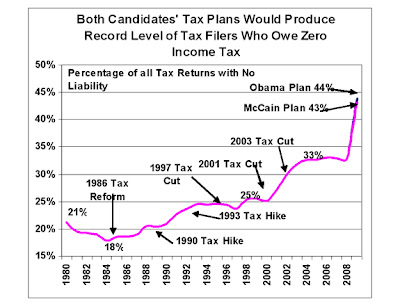Happy Tax Freedom Day
ChrisB on Apr 13 2009 | Filed under: Chris' Page, Domestic Politics, Economics, taxes
Today is the day that we have earned enough to pay its tax burden for the year. This year’s day comes earlier than last year, though this is due to recent stimulus effects. Before you start to celebrate though, Doug Bandow warns us that the future does not look good on the tax burden front.
Runaway spending ensures that this year’s TFD will be dwarfed by future TFDs. Some day someone will have to pay off the debts being run up today. The Obama administration’s budget figures are bad enough, but they almost certainly rest upon unrealistic economic expectations. The CBO again offers a sobering analysis: “CBO’s estimates of deficits under the President’s budget exceed those anticipated by the administration by $2.3 trillion over the 2010-2019 period.”
What do do about it? Many are taking to Tea Party protests. While Jon Henke defends the protests from Paul Krugman’s libel.
Yet, in today’s New York Times column (in which he makes some reasonable points about the sad state of the Republican Party), Paul Krugman grossly misuses a term to libel a variety of people.
Last but not least: it turns out that the tea parties don’t represent a spontaneous outpouring of public sentiment. They’re AstroTurf (fake grass roots) events, manufactured by the usual suspects. In particular, a key role is being played by FreedomWorks, an organization run by Richard Armey, the former House majority leader, and supported by the usual group of right-wing billionaires. And the parties are, of course, being promoted heavily by Fox News.
What Freedomworks and various other organizations are doing is not “astroturf” any more than the anti-war protests of some years back were astroturf because ANSWER and Moveon.org helped organize people around those events. Astroturfing is paid activism by an organization; it is not genuine grassroots activism that funded groups are simply helping to organize.
Update: More piling on from my home town Tea Party site.
Sphere: Related Content


